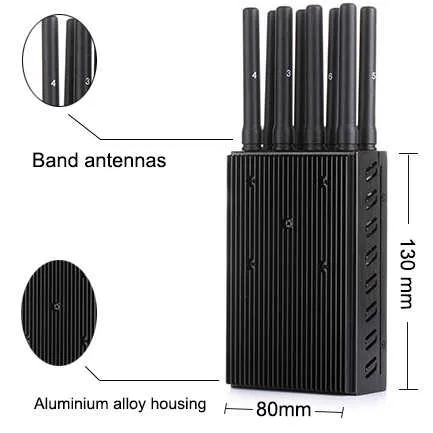Thief’s Using Wifi Jammers Bought $40
So now that thief’s are using WiFi jammers that apparently can be bought for $40, what is everyone turning to to protect your property?

News of break-ins these days show quite a few security camera captures, but in many of them the perpetrator is covering their face. So ultimately I’m not so sure how much security cameras (even wired ones that capture clear images) can really protect a property.
It appears even traditional alarm systems would be disabled by a signal blockers since all the sensors’ signal would be blocked as well.
I have NEVER considered a WiFi connected device to be any sort of serious security device. For a serious security device, it needs to be wired (power and data), and the video recorded locally with serious backup power (no, a 15 minute UPS does not qualify). I do have what would likely be considered a Pro-sumer level video camera system, with hours of backup power.
With that said, I have over 40 Wyze cameras, and I do use them regularly as they are quite a bit less expensive than my wired system, and the software is more convenient for a quick look remotely.
Two of the most common attacks are a simple broadband signal generator and a specific WiFi De-Authentication. In the case of the first, the jammer simply broadcasts a strong enough signal that the intended signals are covered in noise. An audio example would be trying to talk back and forth with someone 100 feet away in an empty stadium. That would likely work fine, but now add 50,000 other people and there is so much noise that the person 100 feet away can not be heard. A broadband jammer is a quite simple device.
A De-Authentication attack is an smart device that to keep this simple, impersonates the WiFi client and sends a command to the WiFi access point telling it that the client is disconnecting. Note that WPA-3 prevents that by encrypting the management packets. However although the WPA-3 standard has been out for quite a few years, most IoT devices do not support it.
Both of these attacks happen between the WiFi client and access point, so a firewall or anti-virus never get involved.

News of break-ins these days show quite a few security camera captures, but in many of them the perpetrator is covering their face. So ultimately I’m not so sure how much security cameras (even wired ones that capture clear images) can really protect a property.
It appears even traditional alarm systems would be disabled by a signal blockers since all the sensors’ signal would be blocked as well.
I have NEVER considered a WiFi connected device to be any sort of serious security device. For a serious security device, it needs to be wired (power and data), and the video recorded locally with serious backup power (no, a 15 minute UPS does not qualify). I do have what would likely be considered a Pro-sumer level video camera system, with hours of backup power.
With that said, I have over 40 Wyze cameras, and I do use them regularly as they are quite a bit less expensive than my wired system, and the software is more convenient for a quick look remotely.
Two of the most common attacks are a simple broadband signal generator and a specific WiFi De-Authentication. In the case of the first, the jammer simply broadcasts a strong enough signal that the intended signals are covered in noise. An audio example would be trying to talk back and forth with someone 100 feet away in an empty stadium. That would likely work fine, but now add 50,000 other people and there is so much noise that the person 100 feet away can not be heard. A broadband jammer is a quite simple device.
A De-Authentication attack is an smart device that to keep this simple, impersonates the WiFi client and sends a command to the WiFi access point telling it that the client is disconnecting. Note that WPA-3 prevents that by encrypting the management packets. However although the WPA-3 standard has been out for quite a few years, most IoT devices do not support it.
Both of these attacks happen between the WiFi client and access point, so a firewall or anti-virus never get involved.

コメントを書く...
Comments